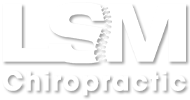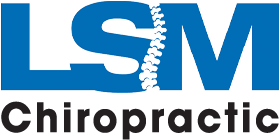What to Expect On Your First Visit To LSM Chiropractic

Welcome to LSM Chiropractic!
We want to help you make your first visit as pleasant and efficient as possible. In this section we will help you learn what to expect during your first visit to LSM Chiropractic. We also provide most of the forms you will need to complete so you can do these ahead of time. We hope that by going through these items at home, you will be more prepared and comfortable when you arrive for care.
Medical History
The first thing your chiropractor will do is a thorough history on you. This will consist of detailed questions about your injury or condition, such as where it occurs, what makes your condition better or worse and how you would describe the pain. It will also be important to go over past medical history, such as if you’ve had this condition before or other health conditions like high blood pressure or diabetes as they will affect how quickly one will heal from injury. Family and social history will also be discussed with the patient.
Comprehensive Examination
On your first visit, your doctor will perform a comprehensive evaluation specific to your presenting condition(s). This will include range of motion, orthopedic evaluation of the region(s), and neurologic examination. X-rays may be considered based on the medical necessity. This will assist your doctor in determining the specific cause(s) of your symptoms and how best to address your individual concerns.
X-Ray Imaging
Your doctor may determine that it is appropriate to take x-rays of your injury. This is done to help rule out any fractures or more severe issues that can not be determined through an exam or your history. Many conditions that chiropractors treat have similar presentation as other conditions and x-rays can help make the confirmation of one or the other so that the proper treatment is given.
Personal Consultation
After a history, exam, and x-rays are done, your doctor will then use all of the information that they have obtained and explain what your condition is and how it is causing your symptoms. They will then explain what can be done in the office for care. When appropriate, they will give you exercises, stretches or modifications to your daily activities to help prevent your symptoms from returning.




